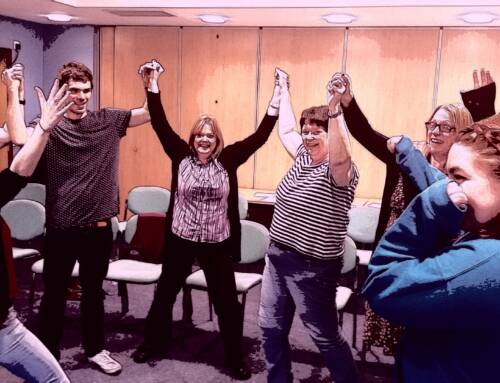
Navigating Turbulent Waters
In the intricate tapestry of family life, conflict often emerges as a natural part of the dynamic. While families are remarkably resilient and capable of weathering storms and bouncing back, persistent patterns of conflict can inflict lasting harm, particularly to children’s mental and physical well-being (Sori, Hecker, & Bachenberg, 2016). At The AOC, we recognise the significance of addressing familial discord through counselling and therapy, providing families with the tools and support they need to navigate these challenges.
Conflict within families can manifest in various forms, from verbal disagreements to deeper-seated rifts that strain relationships (Marta & Alfieri, 2014). However, rather than viewing conflict as a sign of dysfunction, it’s essential to acknowledge it as an opportunity for growth and understanding (Divecha, 2020).
Our approach
The AOC emphasises resolving conflict through therapeutic interventions that promote communication, understanding, and reconciliation. By delving into the underlying dynamics of family structures and interactive patterns, our counsellors work alongside families to identify the root causes of conflict and implement strategies for resolution (Goldenberg, 2017).Through family therapy sessions, we explore the interconnected relationships within the family unit, addressing conflicts holistically rather than treating them in isolation (Goldenberg, 2017). By fostering an environment of connection and understanding, families can cultivate a culture where conflicts are acknowledged and repairs are embraced (Divecha, 2020).
One of the key strategies employed in family counselling is the promotion of authentic repair processes. This involves acknowledging the offence, expressing remorse, offering a simple explanation, and actively working towards reconciliation (Divecha, 2020). Families can rebuild trust and strengthen their bonds by encouraging open and sincere communication.In addition to therapeutic interventions, we offer a range of activities and worksheets designed to facilitate conflict resolution within families. These resources focus on exploring family narratives, identifying shared values, and recognising areas of strength within the family unit (Goldenberg, 2017).
For children, navigating conflict can be particularly challenging. However, through interactive games and activities, such as board games, physical play, and creative endeavours, children can learn valuable skills in communication, problem-solving, and emotional regulation (Sori et al., 2016).
Furthermore, families can practise effective communication techniques at home, such as the “Invisible Chair” technique. Here’s how to do it:
- Set up an imaginary chair in the room where your family gathers.
- Establish a rule that only the person holding the “Invisible Chair” can speak without interruption.
- Take turns sitting in the chair and expressing thoughts and feelings without fear of judgement or criticism.
- Encourage active listening among family members while someone holds the “Invisible Chair,” fostering empathy and understanding.
Incorporating the “Invisible Chair” technique into your family’s routine can create a safe space for open communication and conflict resolution.
At The AOC, we believe that family conflict presents an opportunity for growth and transformation. Through counselling, therapy, and supportive interventions, we empower families to overcome challenges, strengthen their relationships, and cultivate a sense of harmony and resilience in the face of adversity.
References:
Divecha, D. (2020). Conflict isn’t always to be avoided; clashes can be productive, stimulating learning, fostering understanding, and moving a relationship forward. In P. Gilbert & L. Boulter (Eds.), Compassionate mind, compassionate family (pp. 81-94). The Compassionate Mind Foundation.
Goldenberg, I. (2017). Family therapy and systematic theory. Cengage Learning.
Marta, F., & Alfieri, S. (2014). Family conflict: A new perspective. Routledge.
Sori, C. F., Hecker, L. L., & Bachenberg, K. L. (2016). Conflict and its impact on family dynamics. Journal of Family Psychology, 30(6), 720-731.





